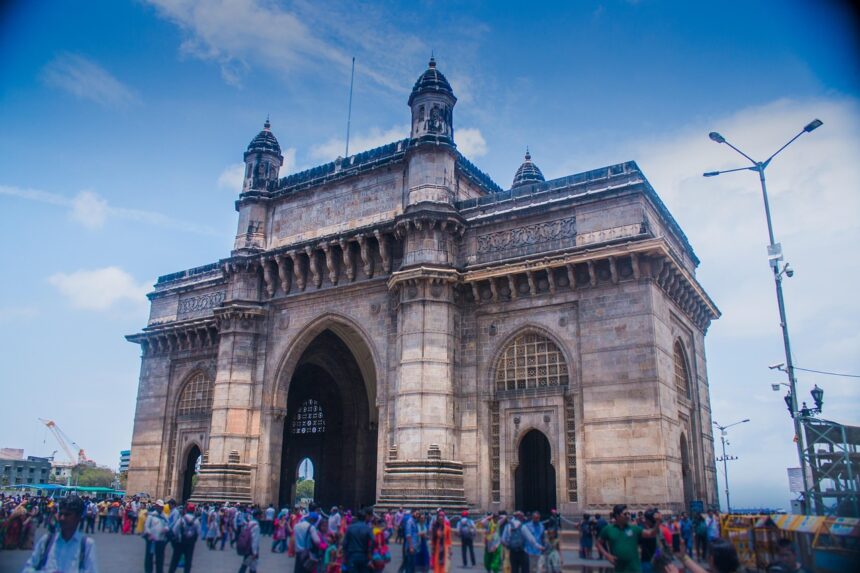Key Metrics:
- Lok Sabha Seats: 48 (second highest in India)
- Rajya Sabha Seats: 19
- Population: Over 125 million (2025 estimate)
- GDP Contribution: ₹36.34 lakh crore (FY 2023-24, highest among states)
- Urbanization Rate: Approximately 45%, including key cities like Mumbai, Pune, and Nagpur
Mumbai, 2025 — Maharashtra, with its 48 Lok Sabha seats, wields unparalleled influence in shaping India’s political and developmental trajectory. As a state that bridges the nation’s financial hub with its rural heartland, Maharashtra’s electoral weight often defines the contours of national governance. This article delves into the strategic importance of Maharashtra’s Lok Sabha representation in determining India’s future policies and political landscape.
A Political Powerhouse in National Elections
- Second-Highest Representation
- Crucial Electoral Role: Maharashtra’s 48 Lok Sabha seats, second only to Uttar Pradesh, are vital for any party aspiring to form the central government. Winning a majority of these seats often solidifies a party’s chances at the national level.
- Bellwether State: Electoral outcomes in Maharashtra frequently mirror broader national trends, making it a key focus for political strategists.
- Diverse Demographics
- Urban-Rural Divide: Maharashtra’s mix of metropolitan areas like Mumbai and Pune and agrarian regions like Vidarbha and Marathwada demands tailored political strategies to address diverse voter priorities.
- Caste and Community Dynamics: The state’s electorate is influenced by factors such as caste alignments, linguistic identity, and community interests, which play a crucial role in shaping electoral outcomes.
Shaping National Policies Through Representation
- Economic Policy Influence
- Financial and Industrial Contributions: As India’s largest GDP contributor, Maharashtra’s representatives often champion policies that bolster industry, trade, and infrastructure development on a national scale.
- Agricultural Advocacy: With a significant agrarian population, the state’s MPs advocate for farmer-centric policies like subsidies, irrigation projects, and drought mitigation strategies.
- Urban Development Focus
- Infrastructure and Transport: Maharashtra’s urban MPs push for transformative projects like the Mumbai-Nagpur Expressway and metro expansions, setting benchmarks for national urban planning initiatives.
- Sustainable Development: Given the environmental challenges faced by its urban centers, Maharashtra’s representatives play a pivotal role in shaping national environmental policies.
Challenges to Maximizing Influence
- Political Fragmentation
- Coalition Politics: Frequent shifts in alliances between major parties like the BJP, Shiv Sena, NCP, and Congress often disrupt policy continuity, limiting Maharashtra’s cohesive influence at the Centre.
- Regional Disparities: Balancing urban prosperity with the developmental needs of rural and drought-prone areas remains a critical challenge for the state’s MPs.
- Infrastructure and Social Inequality
- Unbalanced Growth: Despite its economic prominence, regions like Vidarbha and Marathwada lag in development, often resulting in uneven political representation and advocacy.
- Rising Expectations: Increasing urbanization and youth participation demand more comprehensive policies addressing employment, housing, and public services.
Key Contributions of Maharashtra’s Lok Sabha Members
- Infrastructure Development
- Mega Projects: MPs from Maharashtra have consistently advocated for infrastructure investments, including port expansions, expressways, and the development of new airports like Navi Mumbai International Airport.
- Smart Cities Initiative: Urban centers like Pune and Thane have emerged as leaders in the national Smart Cities Mission, driven by the efforts of Maharashtra’s representatives.
- Social Welfare Programs
- Healthcare and Education: Policies aimed at improving healthcare access and educational infrastructure in underserved regions have been driven by the state’s MPs, influencing national strategies for welfare.
The Road Ahead: Maharashtra’s Future Role
- Leveraging Urbanization
- Policy Advocacy: With cities like Mumbai and Pune as hubs of innovation and finance, Maharashtra’s MPs have the potential to champion policies that strengthen India’s global economic position.
- Sustainable Growth: Advocating for sustainable urban growth can position Maharashtra as a leader in balancing development with environmental conservation.
- Bridging Regional Gaps
- Inclusive Development: Greater focus on integrating rural regions into the state’s growth story will enhance Maharashtra’s role as a representative model for national development.
- Empowering Youth and Women: Proactive policies addressing employment, entrepreneurship, and gender equity will amplify Maharashtra’s influence on India’s socio-economic landscape.
Conclusion: Maharashtra’s Indispensable Role
Maharashtra’s 48 Lok Sabha seats serve as a critical axis in India’s political and economic framework. With its diverse electorate, robust economy, and strategic political importance, the state continues to shape national policies and electoral outcomes. As India looks toward a future of inclusive growth and global leadership, Maharashtra’s role as a political and economic powerhouse will remain indispensable.


Leave a Reply